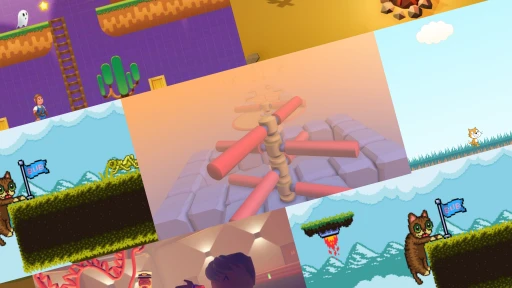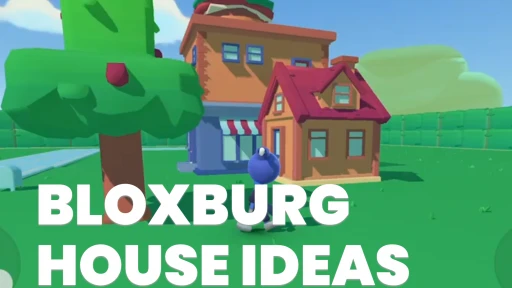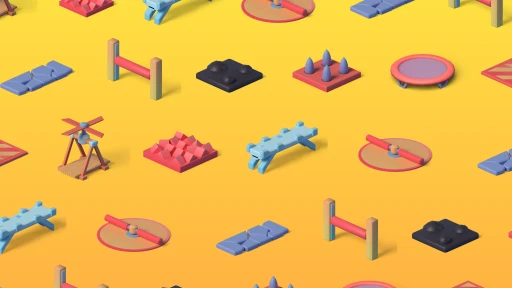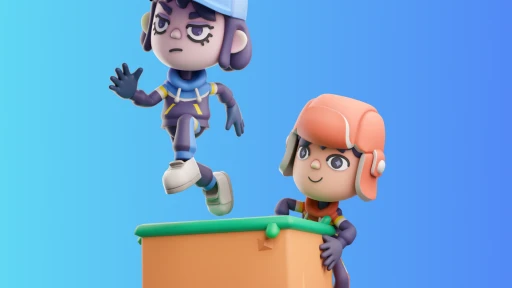The 5 Best Strategies for Successfully Balancing Teen Game App Development and School
Meet 12-year-old Sam Smith . Instead of going to school, he spends his days making mobile games. His latest creation, the brutally tough endless runner Spacepants, has earned him enough money to buy his brother’s new gaming systems.
Stories like Sams showcase how empowering creating games can be for teens. But teen game app development and schoolwork both require major time commitments that can seem impossible to balance.
Most teens already have packed schedules filled with classes, activities, and more. Learning to code and build even simple games takes hours of focused work, too.
Its hard enough to stay motivated working solo on passion projects, let alone finding time between algebra homework and soccer practice. Miss too much and you risk falling behind your peers.
Balancing both gaming passions and student responsibilities sounds difficult...and it is. But it’s also completely achievable.
Keep reading to find out how.
The Challenges of Time Management
Lets face it, between classes, homework, sports, and other activities, the average teens schedule is stuffed like a suitcase headed to summer camp. Finding time for game creation might seem next to impossible.
Even if your dream is to code the next hit mobile game app, the reality is that just getting started takes exemplary time management skills. Youve got to learn programming basics, figure out your game engines, test gameplay concepts, design interfaces, fix bugs...the list goes on.
Complex 3D worlds require serious dedication over months or years to fully craft. That is, unless you use a no-code game engine .
Staying motivated on passion projects in your free time can be tough too, especially if you hit confusing errors or creativity blocks along the way. Without classmates or teachers keeping you accountable like in school, its easy to slack off when making your own game gets difficult, which can negatively impact progress.
On top of that, taking time away from hitting the books brings the risk of falling behind on material your friends are covering or struggling when exams roll around.
No one is saying balancing your gaming aspirations with academic responsibilities will be easy breezy. But have hope, because as well see, it IS totally possible if you follow some key time management strategies from teen developers already succeeding in both worlds.
Time Management Tips From Teen Game App Developers
So how exactly have students like Sam balanced the intensive workload of game creation with attending school?
Here are some of their best tips:
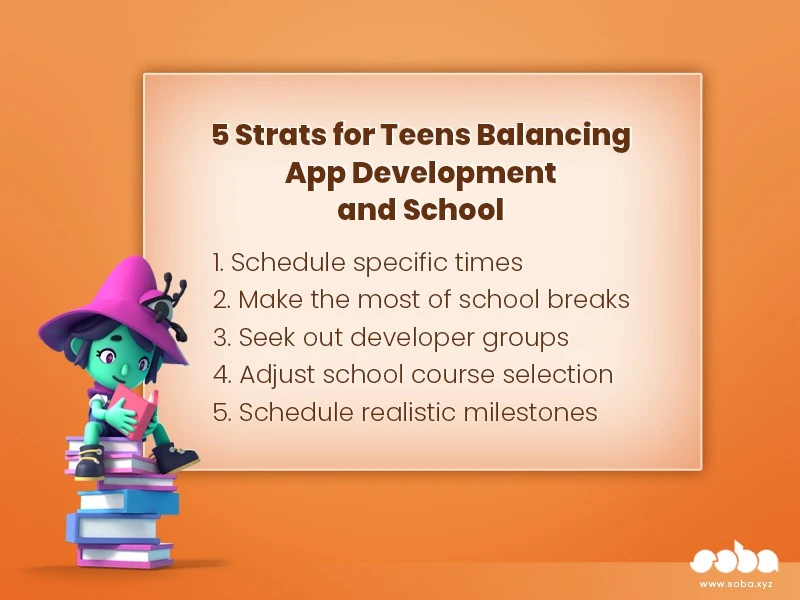
Schedule Specific Work Times
Successful students emphasize the importance of scheduling coding for defined hours on set days. Schoolwork expands easily to fill available time, so firm limits ensure you block off time for assignments. Try mimicking the gaming time limits set by parents.
Setting parameters around coding time also allows you to fully disengage and focus when studying without the temptation to toggle over “for just a few minutes.” Identify times of day when you feel most productive for app development tasks and protect that block if you can as well.
Make the Most of School Breaks
Focus on tackling bigger coding projects when classes pause for vacations. That time freedom allows progress without homework pressures. For instance, try swapping playing games for making them.
That open window of freedom allows progress free of homework pressures or class schedules getting in the way. Then, map out tasks beforehand using project boards and checklists so you stay on track toward specific milestones while working.
When your schedule is the most free, you’ll be most tempted to just sit around and play video games or watch YouTube. But the free time you get to learn and absorb new information is so much more valuable than spending your time on something else.
Seek Out Developer Groups
Getting constructive feedback, troubleshooting guidance, and motivation from other developers prevents feeling isolated. Fellow coders in online communities provide essential support for indie developers.
For instance, if you’re an active member sending in memes often, you’re more likely to get your questions answered by someone more experienced.
Think of it this way: If you wanted to become a professional basketball player, the best way to learn would be from an NBA player, right? The only problem is, how many NBA players do you know?
With a coding community, you have direct access to people with years of experience — all willing to help you learn, teaching you the way. It’s an amazing opportunity for young developers to learn game app development at a lightning-fast rate.
Adjust School Course Selections
Teens passionate about game development can explore aligning elective or supplementary course choices to deepen exposure beyond self-guided learning.
Specialized classes in programming, graphic design, writing, and more directly boost abilities to enrich personal projects later with enhanced expertise.
Discuss bridging this coursework with counselors to ensure credits meet academic requirements simultaneously. Maximizing subject areas tied to app development empowers bigger visions. Refining those professional-grade talents for personal undertakings keeps engagement sky-high.
Schedule Realistic Milestones
Ambitious game ideas tempt overextending abilities or underestimating required effort. Divide intimidating projects into incremental check-marked objectives on a timeline built from prior accomplishments. Establish measurable design, art asset, or feature targets to hit each dev session without expectation creep causing frustration.
Also, celebrate crossing items off while always accelerating at your own pace. These consistent tiny wins sustain motivation better than failing on inflated end goals requiring unproven skills. So master modest mobile mini games before aspiring AAA studios.
How to Get Started in Teen Game App Development
While coding skills unlock immense possibilities, not all aspiring creators have the background...yet. However, no-code platforms like Soba provide an entry point for constructing games without programming expertise. If the concept seems daunting, consider teens already succeeding.
Michael Sayman began tinkering with game design at age 13 after experimenting with a basic programming language. He started small - creating simple text-based adventures. However, through gradually honing skills in an engine like GameMaker, his mobile hit 4 Snaps surpassed 1 million downloads by 17.
Arjun Kumar likewise tapped free resources by teaching himself game app development from online lessons and forum community support. By the age of 14, his award-winning app paved the way for more advanced projects.
Both leveraged available tools for self-guided education tailored to personal interest and pacing without dictated school curriculum. Soba accelerates that journey for other youth today.
Make Mobile Games Without Knowing How to Code
With Soba, no prior coding or experience is required. The intuitive drag-and-drop editor makes game creation instinctive. Budding teens can craft 3D worlds from their imagination and then playtest concepts on mobile devices instantly without complicated builds.
Smooth iteration allows rapidly honing gameplay mechanics, graphics, sounds, and narratives for almost any genre until polished. When excited by your functioning prototypes, why not publish them for your classmates and gather more great feedback?
Plus, you get access to the Soba community where you can ask questions and share progress, accelerating your learning tenfold. So whether you want to make a platformer or an Obby game , Soba has the tools you need to succeed when you’re still in school.
The Educational Benefits of Game App Development
Between cramming for exams, crushing extracurriculars, and getting chauffeured to friends’ houses on weekends, your teen’s schedule already bulges. So why encourage adding game programming on top of all that when grades and sleep struggle for priority?
Beyond just tapping interests or passions, creation cultivates critical transferable abilities.
Designing interactions requires similar logical thinking as coding functions, albeit in visual, drag-drop flows rather than syntax lines. Bringing ideas to screen demands constant problem-solving when navigators skip assumed paths.
Creative dilemma-busting builds the grit and persistence that homework equally demands.
The CDC reports students who persist through STEM challenges demonstrate heightened problem-solving, self-efficacy, and engagement over peers quitting when faced with difficulties.
Why not continue that exposure beyond the classroom through coding games for oneself versus mandated busywork from last century’s textbooks?
Academic researchers further revealed that activities driven by intrinsic motivations increase both skills and psychological well-being much more than extrinsic reward-focused education norms. So, fueling individual curiosity promises better outcomes.
Many young innovators like Arjun or Michael even complement formal education through independent research when their school lacks advanced courses. This demonstrated initiative and hunger tracks well for entrepreneurial mindsets that many colleges now actively recruit.
So rather than play, consider game creation as a tool for building the persistence, problem-solving, tech literacy, and even college prep sought from traditional activities...done joyfully on the student’s terms.
Your Next Steps for Learning Game App Development
Achieving academics and teen game creator glory may sound impossible to balance together. However, implementing organizational habits and tapping resources like online communities enables a budding developer to thrive in both interests. Don’t buy into assumptions that student responsibilities inherently limit chasing development dreams.
If inspired towards making your own games, embrace the journey on your schedule with Soba.
Our no-code platform (and community) allows you to build versatile worlds in minutes, not months.
So join us today to get started!
